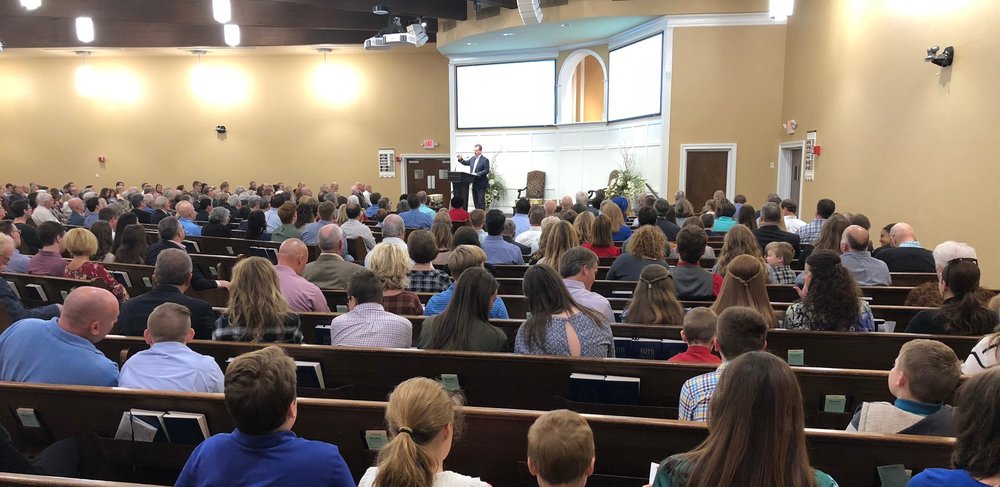Neal Pollard
What do you contemplate during the Lord’s Supper? Your mind could go in a thousand directions, the cruelty and infliction of pain, the hatred and rejection, the eternal plan of God, His unending love, the ugliness of your sin, and on and on.
There is a curious aspect to the entire frenetic proceedings that Jesus endured. You first read about it in Isaiah’s prophecy concerning the atonement offered by the “Suffering Servant.” The prophet wrote, “He was oppressed and He was afflicted, Yet He did not open His mouth; Like a lamb that is led to slaughter, And like a sheep that is silent before its shearers, So He did not open His mouth” (53:7; cf. Acts 8:32). For emphasis, he says it twice: “He did not open His mouth.”
At the end of the gospel accounts, after Jesus’ arrest, we see two significant periods of time where this applied to Him. Before the Jews in the farce and mockery of a trial, Jesus kept silent (Mat. 26:63; Mark 14:62; Luke 23:9). Then, when handed before the Romans and their governor, Pilate, He did not answer (Mat. 27:12-14) and He gave him no answer (John 19:9). Scholars have scoured the ancient records in an effort to find anything like it in the legal annals of the Jews or Greco-Roman society.
Why did Jesus keep silent through the judgment phase of His crucifixion? He was not totally silent (Mat. 26:64; Luke 22:67-701), but as the charges bombarded and cascaded He gave no rebuttal. It was not that He could not. He had bested them in every debate and silenced them (see Mat. 22:46).
Why the silence?
- He came to suffer, not to speak.
- They would not have been convinced by His words any more than His wonderful works.
- Jesus does not see this as a legal matter, but a spiritual necessity.
- He placed His fate in the hands of God, as He prayed in Gethsemane (Mat. 26:39; John 6:38).
- He accepted His situation.
- The charge brought by two witnesses in Matthew 26:60-61 was technically true, though they twisted His words.
- It provides a stark and compelling contrast between accusers and accused, which the reader readily sees.
No doubt there are more reasons, some known only to God. But it provides as much tension and drama in the Passion as it does confirmation of prophetic claims. It stands as but one of a thousand pictures of a loving, determined Savior to endure whatever necessary to pay for our sins with His life. The next time you contemplate the various “scenes of fear and woe,” take a moment to reflect on the silence of the Lamb. Through it, He truly speaks volumes!
1The reason for this is explained well by Stuart K. Weber : “When Jesus refused to answer and the attempts of the chief priests failed to convict Jesus, Caiaphas took the lead. I charge you under oath by the living God was the priest’s trump card. According to Jewish law, the priest had the authority to force a person to testify. If Jesus remained silent, he would violate the law. His decision to answer showed his respect for civil law and authority” (Holman NTC, 446-447).























